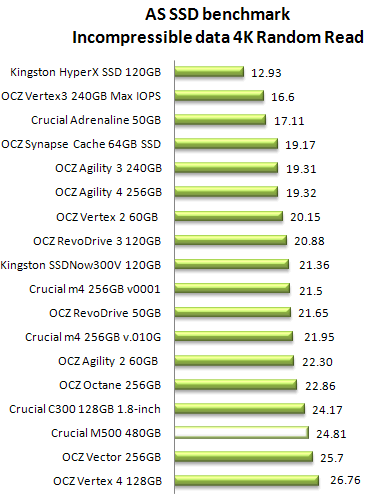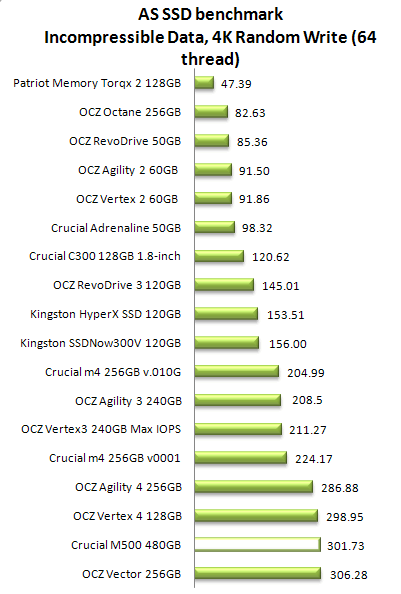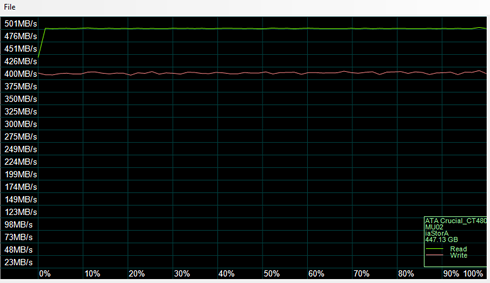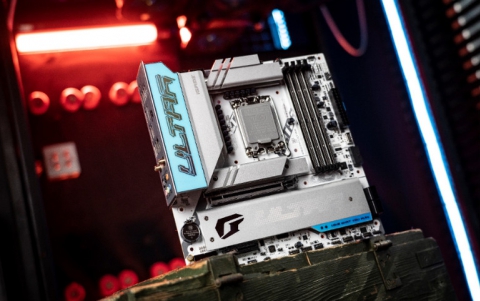Crucial M500 480GB SSD review
6. AS SSD benchmark
We proceed with the AS SSD benchmark, which contains five synthetic as well as three practical tests. The synthetic tests determine the sequential and the random read / write performance of an SSD. These tests are carried out without using the operating system's cache. The Seq-test measures how long it takes to read and write an 1GB file. Most importantly, this sequential benchmark uses incompressible data for all of its transfers.
The 4K benchmark tests the read and write performance for random 4K blocks. The 4K-64-THRD-test corresponds to the 4K procedure except that here the read and write operations are distributed on 64 threads:

The M500's performance in sequential reading with incompressible test was high enough (499.39 MB/s), matching the performance quoted by Crucial. The same applies for sequential writing, where the drive wrote the incompressible files at 408.67 MB/s (average). It is obvious that Micron and Marvell have made a great job with the firmware of the drive, offering a performance consistency with all kinds of data.


At the 4K random reading tests, the Crucial M500 480GB is positioned close to the top of the chart below, with an average reading speed of 24.81MB/s.

The drive was fast in 4K random writing tests with 77.88 MB/s:

Multi-threaded requests for random reading of 4K incompressible files was more demanding for the drive but still, it was well-positioned just below the OCZ Vector 256GB SSD. A great performance for the Crucial M500 SSD:


In the following graph you see how the M500 48GB drive reads and writes files, which have been partially of fully compressed. It is obvious that the both reading and writing speeds do not depend on level of file compression:






















